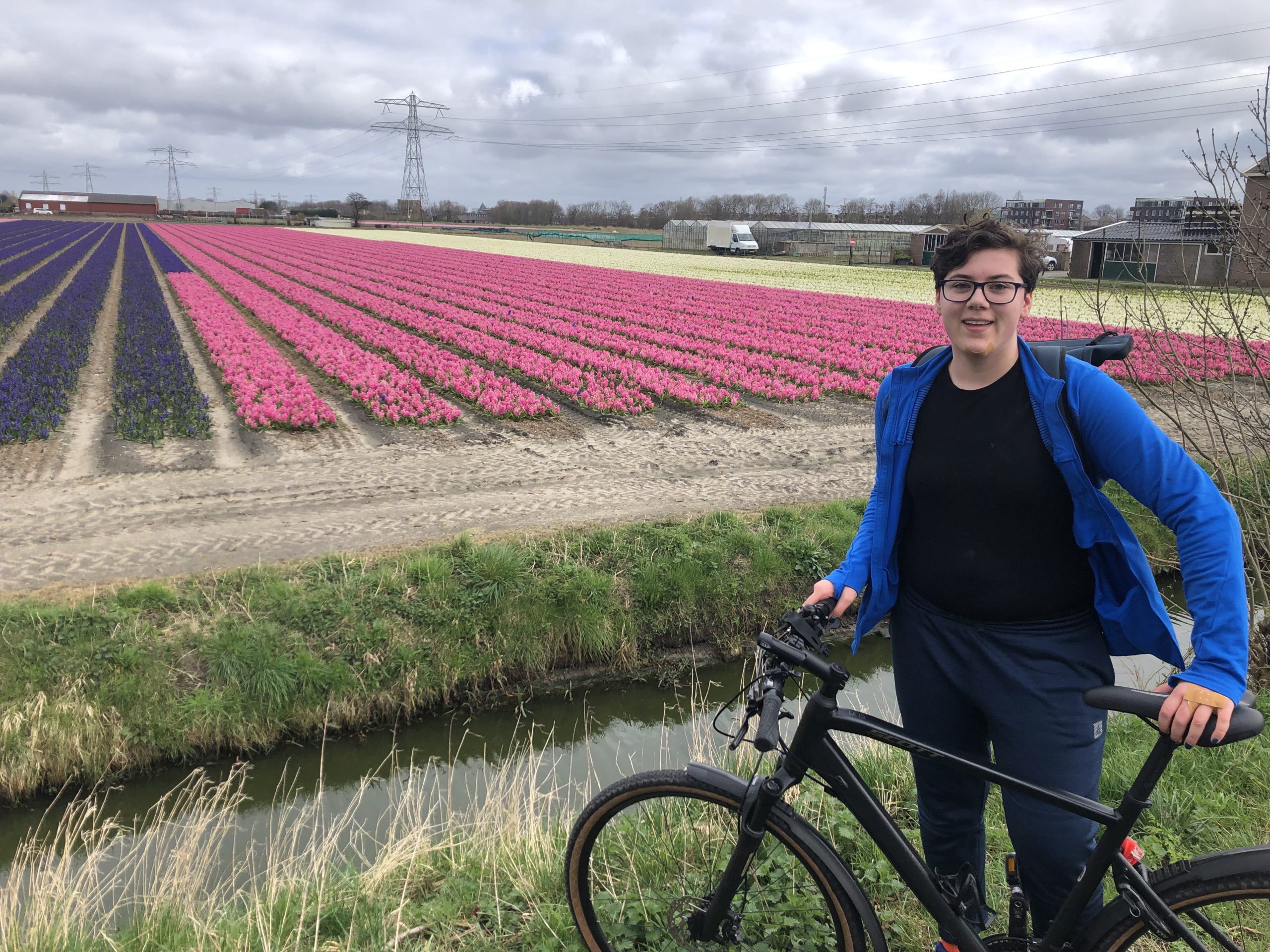Out of the blue, United Way the Netherlands received more than € 1,000 from a private donor. We contacted him and discovered that this was his way of turning the tragic loss of a friend into a positive boost for a group of people with mental issues. Healing the Mind, our project for Ukrainian refugees, was just what he was looking for.
The generous donor turned out to be August Bent, a young man of 17 from an English family living in the Netherlands. We asked him to tell his story, which began with the suicide of a dear friend. Rather than crawling into a corner to grieve in a cloud of sadness and self-pity, he used his love of cycling to raise funds for others whose mental health issues are the cause of depression – or worse.
This is what August told us.
“Although I’ve lived in the Netherlands since I was one year old and this country feels like home, I’ve always gone to British schools. When I can, I spend time in the UK. That’s where I met Ray at the beginning of senior school. We used to hang out together and kept in touch by Instagram and in other ways. I knew that Ray was struggling with their mental health and identity issues. But I didn’t know it was burdening them to that extent, that it would take that toll. It must have been worse than it seemed.
“After going through the grieving process, I decided I wanted to do something. Growing up in the Netherlands, cycling has always been important to me. It works as a release valve for my adrenalin. It benefits my mental health. Exactly four months after Ray passed, I set off on a sponsored bicycle ride.
“In two days, I covered 140 kilometres, from Leidschendam to Haarlem and back, in a loop. My dad accompanied me on the first day and my mum on the second. At one point, we had to shelter from the rain. We were soaking wet; we had to dry ourselves with a towel. I also fell off my bike soon after we left. I still have a scar on my hand to show for it.
“To raise money, I explained my idea to my head teacher and gave a talk to the senior classes. The school also mentioned my initiative in a newsletter that was distributed to all parents, some of whom forwarded my page on the GoFundMe website, where I asked for donations. I asked readers to help me make the world a bit more hopeful for people who feel life isn’t worth living any more.
I did some research on Google to find a deserving Dutch charity to donate the money to. United Way’s initiatives, which were clearly described on the website, hit the mark. Especially the mental health project resonated with me. Ray’s problem was, after all, his mental health.
“To people who are thinking about raising funds for a good cause I’d say: Just go for it! Even if you only get twenty euros, it’ll make a difference to someone. And it’ll make you feel proud to improve the life of a person who may be struggling.”
If August’s story has inspired you to challenge yourself while at the same time raising funds for one of our projects, please contact myles.bavin@local.unitedway.org
Mental health among adolescents
In the Netherlands
- According to a collaborative study by the World Health Organization (WHO), mental health problems among adolescents have increased sharply between 2017 and 2021.
- Gonneke Stevens, Professor of Adolescent Health and Wellbeing at Utrecht University, states that mental health issues among Dutch youth reached an all-time high in 2022.
- The Centraal Bureau voor de Statistiek (CBS) reports that suicide is the leading cause of death among young people, with the number of suicide deaths among males consistently more than twice as high as that among females.
In Europe
- A report published by UNICEF reveals that approximately 9 million adolescents aged 10 to 19 are living with mental health disorders. Anxiety and depression account for more than half the cases. As a cause of death among people aged 15 to 19, suicide deaths are second only to deaths resulting from road injuries.
In the USA
- The National Institute of Mental Health (NIMH) reports that the lifetime prevalence of any mental health disorder among US adolescents aged 13 to18 is approximately 49.5%. Among this group an estimated 22.2% have severe impairment and/or distress.


